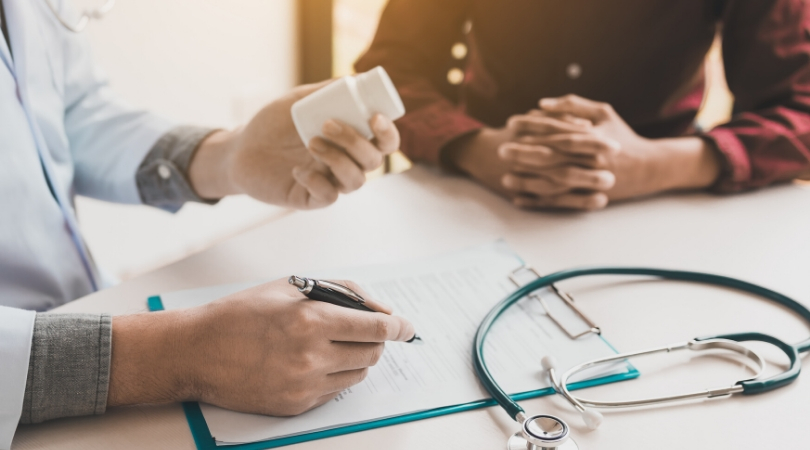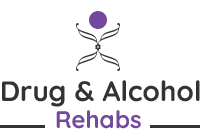Pharmacological Treatment for Drug Addiction
WRITTEN BY SONIA BLUMBERG, BA – JULY 14TH, 2020
Medication for Treating Substance Use Disorders
In the last three decades, the awareness of drug addiction as a disease of the mind and emotions that stem from multiple influencers has become widely accepted and respected by the medical community and, fortunately, most of the general public. People who become addicted to a substance are now diagnosed as having a substance use disorder (SUD), also known as addiction.
The definition of a substance use disorder is when a person continues to use drugs or alcohol despite adverse consequences. This can mean they return to drug-taking after being fired from a job, arrested, becoming physically ill, or losing all their money and the love and respect of their families and friends.

Search For A Rehab Center Near You
What Are Pharmacological Treatments for Drug Addiction?
Pharmacological treatment for addiction involves medication that helps a person remain clean long enough for their brain’s reward center to heal and reset itself. Someone who is not addicted to drugs will still have the ability to discern that a situation is harmful because their brain is not being told that the behavior will release dopamine which causes pleasure. Persons with a substance use disorder will walk into hazardous neighborhoods to get drugs where they could be shot or mugged because their brain knows the drugs will reward them with a dopamine surge.
The brain registers all pleasures in the same way, whether they originate with a psychoactive drug, a monetary reward, a sexual encounter, or a satisfying meal. In the brain, pleasure has a distinct signature: the release of the neurotransmitter dopamine in the nucleus accumbent… The likelihood that the use of a drug or participation in a rewarding activity will lead to addiction is directly linked to the speed with which it promotes dopamine release, the intensity of that release, and the reliability of that release. (Harvard Medical School)
Why is Prescription Medication Effective in Treating Addiction?
The National Center for Biotechnology Information advances science and health point out why medications are effective in treating addiction and what the goals should be for a person who is addicted to a substance and receives medications to help them get clean.
Pharmacological agents have three broad objectives: management of acute withdrawal syndromes through detoxification, attenuation of cravings and urges to use illicit drugs (initial recovery), and prevention of relapse to compulsive drug use. (NCBI)
The most well-known pharmacological treatment for drug addiction is Buprenorphine, brand name Suboxone for the treatment of opiate addiction. Another conventional pharmacological treatment that is frequently mentioned but currently less preferred is Antabuse for treating alcoholism. In general, addiction medications promote recovery and abstinence because they lower the risk of relapse, which allows the brain’s reward center enough time to recover and enables the person to receive the correct messages about a situation or behavior.
One type of treatment that implements pharmacological treatments is called Medication-Assisted Treatment, also known as MAT. With this approach, MAT relies on medication to reduce relapse and cravings and is combined with psychosocial addiction treatment methods. The use of medication-assisted treatment within a quality drug addiction rehab center is now expected. It has proven to be successful versus recovery programs that do not offer medication-assisted treatment.

Types of Pharmacological Treatment Approaches
Most MAT programs currently available combine medication that allows an abuser’s brain chemistry to heal, plus to reduce relapse and cravings, along with evidence-based forms of therapy and other advanced addiction treatment methods. An excellent example of a pharmacological treatment program will include carefully monitored medication, individual counseling, group counseling, relapse prevention, family therapy, stress and anger management, along with holistic therapy.
Another indicator of a quality medication-assisted program is an introduction to the Twelve Steps or another recovery-based support group and the offering of aftercare services.
Medication-Assisted Treatment Programs
A well-respected MAT treatment center will offer a MAT program for the following two addictions as they are the only ones that offer FDA approved medications for the treatment of a SUD.
- Opiate Addiction (heroin, fentanyl, prescription painkillers)
- Alcoholism
Other addictions to benzodiazepines (Xanax, Valium, etc.) cocaine, methamphetamine, or club drugs (ecstasy, Molly, GHB, etc.), and marijuana do not have FDA approved medication that are approved to treat these substance addictions. If a treatment center offers a medication-assisted program for cocaine addiction or any substance other than alcohol or opioids, it is probably not a legitimate MAT approach.
Is Treating Drug Addiction With Prescription Medication the Best Solution?
Strong evidence that exists on how the benefits outweigh the risks for providing a person with substance use disorder the needed prescription medication to get them safely off addictive drugs. However, more work is to be done to invent medicines that treat other drug addictions besides opioids and alcohol. Addiction researchers who published an article with the National Center for Biotechnology Information advances science and health, stress the effectiveness and importance of pharmacological drugs to help recovery from SUD, and how more medications are needed to treat all addictions.
Recent advances in our understanding of the neurobiological basis of the addictive processes have led to the development of a growing number of pharmacological agents to treat addictions. Despite this progress, there are no approved pharmacological treatments for cocaine, methamphetamine, and cannabis addiction. Moving treatment development to the next stage will require novel ways of approaching substance use disorders. (NCBI)
Addiction is a significant public health concern, and government research dollars and attention on developing more pharmacological medications to help people overcome their substance abuse are fortunately now higher on the priority list than it used to be. The Substance Abuse and Mental Health Services Administration, who is responsible for earning the attention of the government to combat addiction, supports the use of medication-assisted treatment and pharmacological treatment for healing addiction.
MAT has proved to be clinically effective and provides a more comprehensive, individually tailored program of medication and behavioral therapy. MAT also includes support services that address the needs of most patients. (SAMHSA)
